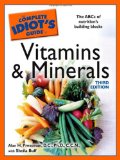|
Coenzyme Q 10 (Ubiquinone 50) is needed for the absorption of oxygen as well as the production of energy in the cells. At the same time, coenzyme Q10 also plays a role in damaging or hindering the development of free radicals in the body. These compounds are called ubiquinones because they can be synthesised by all living cells. (Ubique in Latin = everywhere)
One cannot really refer to Q10 as a vitamin but rather as a nutrient. Q10 is not a substance that necessarily needs to be consumed in the diet as the body is able to synthesise sufficient amounts to meet requirements. The amounts of Q10 needed for an effect in the body are not small. The body converts relatively large amounts of coenzyme Q10.
There is no evidence that the intake of coenzyme Q10 in the form of a dietary supplement has a significant positive effect on the function of the human body. [Lit-1]
Claims made by advertisers such as "improve your health and physical condition" and "strengthen your immune system" by using coenzyme Q10 have not been scientifically confirmed.
Coenzyme Q10: Requirement, deficiency, oversupply
There are no reported coenzyme Q10 deficiencies. However, it is possible that the body's own production for coenzyme Q10 is reduced if the supply of other nutrients and vitamins is insufficient.
" Possible side effects: In a clinical study, possible side effects were discovered as a result of the dietary intake of coenzyme Q10 in dosages between 50 to 300 mg a day on humans for several weeks. The side effects included gastrointestinal intolerances such as a loss of appetite, nausea and diarrhoea. In higher dosages it was found that there was an increase in the plasma enzyme values of lactate dehydrogenase or glutamate-oxalacetate-transaminase (Baggio et al., 1993; Lampertico et al., 1993). Another experiment was carried out on healthy athletes. They were either given 120mg of coenzyme Q10 or a placebo. An increase in activity of the plasma creatine kinase was found after several days of training and interpreted as evidence indicating cell damage. (Malm, 1996) High doses of coenzyme Q10 possibly induce the formation of free radicals which can lead to lipid oxidation and damages of the cell membranes. (Demopoulous et al., 1986)." [Lit-1]
Literature reference:
[Lit-1] Ernährungsmedizinische Beurteilung von Werbeaussagen zu Coenzym Q10, Stellungnahme des BgVV vom 20. April 2001, Bundesinstitut für gesundheitlichen Verbraucherschutz und Veterinärmedizin, 2001.
top  |
Coenzyme Q10 in food:
Foods rich in coenzyme Q10 include corn, Soya, nuts and their oils. Meat and fish also contain a lot of coenzyme Q10.
top 

What You Must Know about Vitamins, Minerals, Herbs, & More: Choosing the Nutrients That Are Right for You,
M.D. Pamela Wartian Smith

Prescription for Nutritional Healing, Fifth Edition: A Practical A-to-Z Reference to Drug-Free Remedies Using Vitamins, Minerals, Herbs & Food Supplements, Phyllis A. Balch CNC

Earl Mindell's New Vitamin Bible,
Earl Mindell, Hester Mundis

The Complete Idiot's Guide to Vitamins and Minerals, 3rd Edition, Alan H. Pressman, Sheila Buff

The Complete Book of Food Counts, 9th Edition: The Book That Counts It All
|

